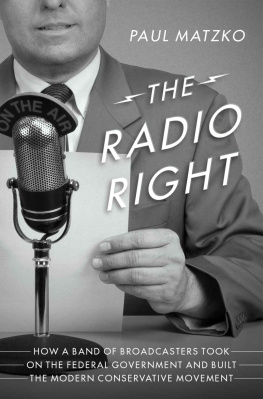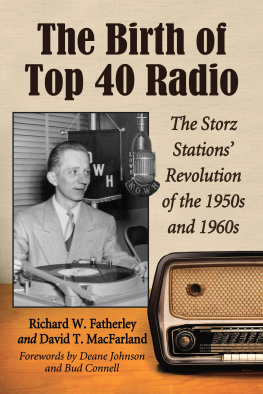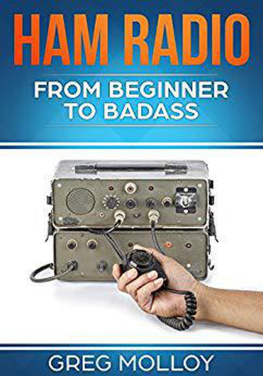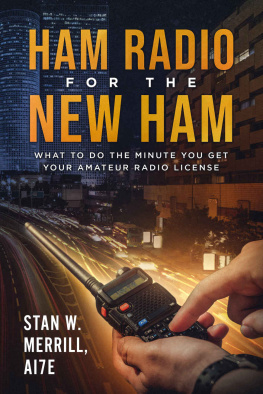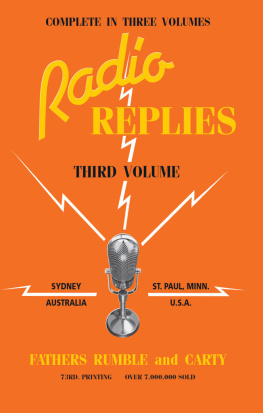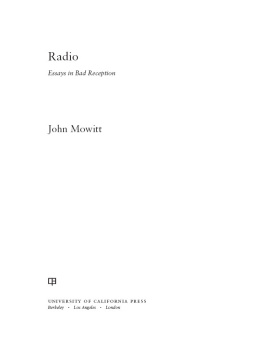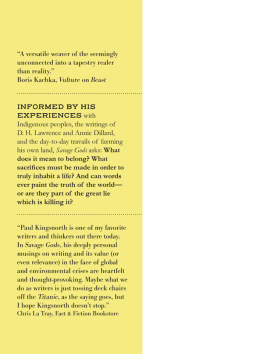Paul Matzko - The Radio Right
Here you can read online Paul Matzko - The Radio Right full text of the book (entire story) in english for free. Download pdf and epub, get meaning, cover and reviews about this ebook. year: 2020, publisher: Oxford University Press, genre: Politics. Description of the work, (preface) as well as reviews are available. Best literature library LitArk.com created for fans of good reading and offers a wide selection of genres:
Romance novel
Science fiction
Adventure
Detective
Science
History
Home and family
Prose
Art
Politics
Computer
Non-fiction
Religion
Business
Children
Humor
Choose a favorite category and find really read worthwhile books. Enjoy immersion in the world of imagination, feel the emotions of the characters or learn something new for yourself, make an fascinating discovery.
- Book:The Radio Right
- Author:
- Publisher:Oxford University Press
- Genre:
- Year:2020
- Rating:5 / 5
- Favourites:Add to favourites
- Your mark:
- 100
- 1
- 2
- 3
- 4
- 5
The Radio Right: summary, description and annotation
We offer to read an annotation, description, summary or preface (depends on what the author of the book "The Radio Right" wrote himself). If you haven't found the necessary information about the book — write in the comments, we will try to find it.
The Radio Right — read online for free the complete book (whole text) full work
Below is the text of the book, divided by pages. System saving the place of the last page read, allows you to conveniently read the book "The Radio Right" online for free, without having to search again every time where you left off. Put a bookmark, and you can go to the page where you finished reading at any time.
Font size:
Interval:
Bookmark:
PAUL MATZKO


Oxford University Press is a department of the University of Oxford. It furthers the Universitys objective of excellence in research, scholarship, and education by publishing worldwide. Oxford is a registered trade mark of Oxford University Press in the UK and certain other countries.
Published in the United States of America by Oxford University Press
198 Madison Avenue, New York, NY 10016, United States of America.
Oxford University Press 2020
All rights reserved. No part of this publication may be reproduced, stored in a retrieval system, or transmitted, in any form or by any means, without the prior permission in writing of Oxford University Press, or as expressly permitted by law, by license, or under terms agreed with the appropriate reproduction rights organization. Inquiries concerning reproduction outside the scope of the above should be sent to the Rights Department, Oxford University Press, at the address above.
You must not circulate this work in any other form and you must impose this same condition on any acquirer.
Library of Congress Cataloging-in-Publication Data
Names: Matzko, Paul, author.
Title: The radio right: How a Band of Broadcasters Took on the
Federal Government and Built the Modern Conservative Movement / Paul Matzko.
Description: New York : Oxford University Press, 2020. |
Includes bibliographical references and index.
Identifiers: LCCN 2019033846 (print) | LCCN 2019033847 (ebook) |
ISBN 9780190073220 (hardback) | ISBN 9780190073244 (epub) |
ISBN 9780190073237 (updf) | ISBN 9780190073251 (online)
Subjects: LCSH: Radio in politicsUnited States. | Radio in religionUnited States. |
Radio broadcastingPolitical aspectsUnited States. | ConservatismUnited States.
Classification: LCC HE8697.85.U6 M38 2020 (print) | LCC HE8697.85.U6 (ebook) |
DDC 384.54/430973dc23
LC record available at https://lccn.loc.gov/2019033846
LC ebook record available at https://lccn.loc.gov/2019033847
To Jessica, my love, and George, my bud
To Evelyn Austin Matzko (19182018)
Many of this books best ideas began with offhand remarks by my mentor, Philip Jenkins, whose first spoken words to me were, We are going to war! I owe a special debt to Amy Greenberg, who went the extra mile when she did not have to do anything at all. This project ultimately began in a graduate seminar with David Farber and flourished under the generous ministrations of David Watt. The supply-demand metaphor comes from a class with Roger Finke, who has the gift of making every person he talks to feel like the most important person in the world at that moment. Special thanks go to John Matzko, who taught me how to write even when he may wish he did not. Thank you also to Lincoln Mullen, who created the radio station measles maps; I am glad you settled in Canterbury.
My research depended on the work of many dozens of archivists and library staff, but I want to honor in particular the kindness of Tim Nutt at the University of Arkansas, Darrin Rodgers at the Flower Pentecostal Heritage Center, Kenneth Henke at the Princeton Theological Seminary Library, and Meredith Sommers at Milligan College, each of whom went above and beyond the call to help me ferret out interesting documents or who took a poor graduate student out for a meal. Also, this project relied on financial support from the following organizations: the Institute for Humane Studies, the Penn State College of Liberal Arts, the Penn State Democracy Institute, the Charles Koch Foundation, the Baylor University Institute for Studies of Religion, the Southern Baptist Historical Library and Archives, and the Billy Graham Center Archives. Finally, I would like to thank my editorsCynthia Read, Hannah Campeanu, and Jennifer Hammerfor shepherding this book through the publication process.
A portion of chapter three was previously published as Do Something about Life Line: The Kennedy Administrations Campaign to Silence the Radio Right, Presidential Studies Quarterly 48:4 (January 2018): 115. Part of chapter six was published as The National Council of Churches versus Right-Wing Radio: How the Mainline Muted the New Christian Right, in The Lively Experiment: Religious Toleration in America, from Roger Williams to the Present, eds. Christopher Beneke and Christopher Grenda (Lanham, MD: Rowman & Littlefield, 2015): 267286.
| ACA | Americans for Constitutional Action |
| ACCC | American Council of Christian Churches |
| ADL | Anti-Defamation League |
| AFL-CIO | American Federation of Labor and Congress of Industrial Organizations |
| BFC | National Council of Churches Broadcasting and Film Commission |
| CCNTB | Citizens Committee for a Nuclear Test Ban |
| CPUSA | Communist Party USA |
| DNC | Democratic National Committee |
| FBI | Federal Bureau of Investigation |
| FCC | Federal Communications Commission |
| GRI | Group Research Inc. |
| IRS | Internal Revenue Service |
| JCRC | Jewish Community Relations Council |
| JFK | John F. Kennedy |
| LBJ | Lyndon B. Johnson |
| MFN | Most Favored Nation Trade Partner |
| NAACP | National Association for the Advancement of Colored People |
| NCC | National Council of Churches |
| NCCR | National Council for Civic Responsibility |
| RFK | Robert F. Kennedy |
| SANE | National Committee for a Sane Nuclear Policy |
| UAW | United Automobile Workers |
| UCC | United Church of Christ |
| WILPF | Womens International League for Peace and Freedom |
A local campaign official located the source of the problem; if Kennedy lost, it would be because every hate-monger, radio preacher and backwoods evangelist is being stirred up for an assault which will make 1928 look pale by comparison.
Although the campaign did not specify who these radio preachers were, the radio preacher with the widest coverage in the state at the time was Carl McIntire, a fundamentalist minister based in New Jersey. He might not have That prospect alienated many Protestant voters in West Virginia. This was the power of radio broadcasting in 1960; from a relative handful of stations, right-wing broadcasters could reach thousands or even millions of listeners with their criticisms of Kennedys faith and politics.
Biographers covering Kennedys 1960 campaign invariably note that he participated in the first televised presidential debates with a haggard-looking Richard Nixon, but what is less well known is that he was the first presidential candidate forced to deal with the phenomenon of conservative domination of independent radio. Conservatives had taken advantage of changes in the radio industry in the 1950s to build an informal network of radio stations spanning the entire country.
The election of 1960 marked the first time these conservative broadcasters flexed their political muscle on a national stage. A quick look at chart , which counts the radio stations that aired McIntires program, illustrates both the precipitous rise of right-wing radio and the scale of the problem confronting John F. Kennedy.
Font size:
Interval:
Bookmark:
Similar books «The Radio Right»
Look at similar books to The Radio Right. We have selected literature similar in name and meaning in the hope of providing readers with more options to find new, interesting, not yet read works.
Discussion, reviews of the book The Radio Right and just readers' own opinions. Leave your comments, write what you think about the work, its meaning or the main characters. Specify what exactly you liked and what you didn't like, and why you think so.

